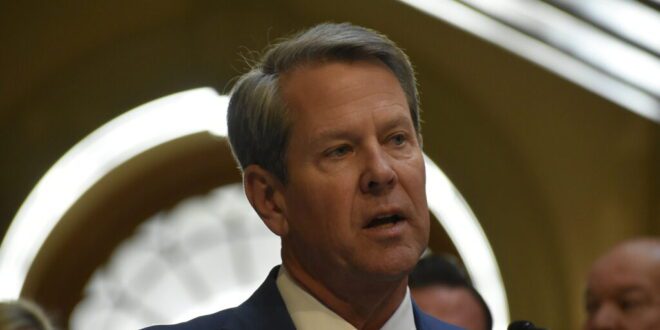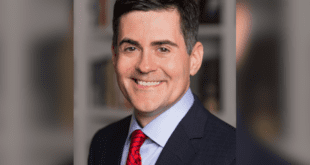The Republican State Officials Facing Indictment in Georgia Election Conspiracy
Several Republican state officials who were targets of former President Donald Trump in the aftermath of the 2020 presidential election have chosen not to defend him as he faces indictment in an elaborate plot to overturn Georgia’s election results. Trump and 18 others have been named as defendants in a 98-page criminal indictment produced by a Fulton County grand jury. The indictment accuses them of engaging in a multi-state conspiracy to alter the outcome of the 2020 election.
In response to the indictment, Trump announced plans to release a report on “presidential election fraud” in Georgia. This prompted Governor Brian Kemp to publicly refute the former president’s claims. Kemp declared on social media that the 2020 election in Georgia was not stolen, stating that no evidence had been presented in a court of law to substantiate the allegations of fraud. Kemp emphasized the importance of the upcoming elections in 2024 and the need to focus on the future of the country.
Republican Secretary of State Brad Raffensperger, who previously faced death threats and calls for his resignation, had a role in the indictment. He was on the receiving end of a phone call from Trump on January 2, 2021, where Trump urged him to find enough votes to reverse the election results. Raffensperger responded to the indictment with a statement asserting the importance of accountability and respect for the Constitution and the rule of law.
Former GOP Lt. Gov. Geoff Duncan, who testified before the grand jury, has been vocal in his criticism of President Trump since 2020. He expressed hope that the indictment would serve as a turning point for Republicans. Trump himself has been charged with three counts of solicitation of violation of oath by a public officer. The indictment also references a phone call to Kemp and several tweets about him, including one where the former president referred to the governor as an “obstructionist.”
Kemp and Raffensperger both won landslide victories in their bids for reelection, defeating Trump-backed Republican challengers. By winning with the support of left-leaning voters, Raffensperger secured a comfortable victory in a four-way contest.
This marks the fourth indictment against Trump this year and the second directly related to his attempts to remain in power after losing the election. Trump is facing a total of 13 counts in Georgia, with charges ranging from making false statements and impersonating a public officer to conspiracy to commit forgery and election fraud. The indictment alleges that the defendants knowingly participated in a conspiracy to unlawfully alter the election outcome in favor of Trump. It also reveals the involvement of 30 unindicted co-conspirators.
The indictment includes charges against other prominent Georgia Republicans, such as former Georgia Republican Party Chairman David Shafer and Shawn Still, who acted as a fake elector. Meanwhile, Lt. Gov. Burt Jones and the actions of several other individuals are being investigated separately.
Prominent political allies of Trump, including Georgia GOP First District Chair Kandiss Taylor and Congressman Buddy Carter, have strongly criticized the indictment and called for investigations into the prosecutors involved. Taylor accused Georgia Republican lawmakers of remaining silent in the face of a “witch-hunt” against innocent individuals, including the former president. Carter went as far as calling for a congressional investigation into the district attorney’s actions, accusing her of engaging in a witch-hunt against Trump.
In response to the indictment, Congresswoman Marjorie Taylor Greene alleged that the charges were politically motivated and aimed at suppressing conservative voices. She suggested that economic issues should take precedence over prosecuting the former president.
Overall, the indictment against Trump and his associates in Georgia has sparked fervent reactions from both supporters and opponents of the former president. The legal proceedings are likely to have significant implications for the Republican Party as it navigates the future of its leadership and electoral strategies.
 Mind Uncharted Explore. Discover. Learn.
Mind Uncharted Explore. Discover. Learn.




